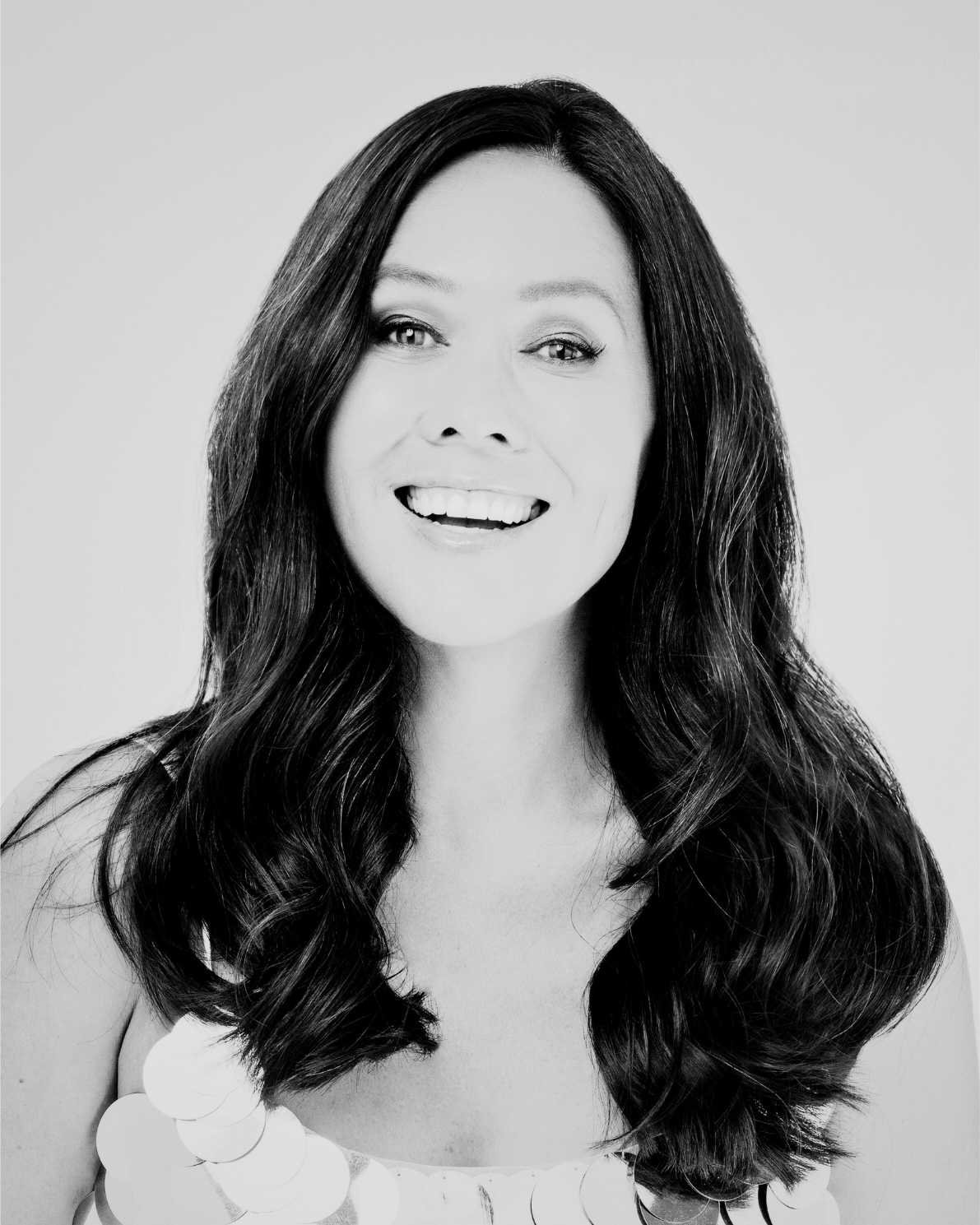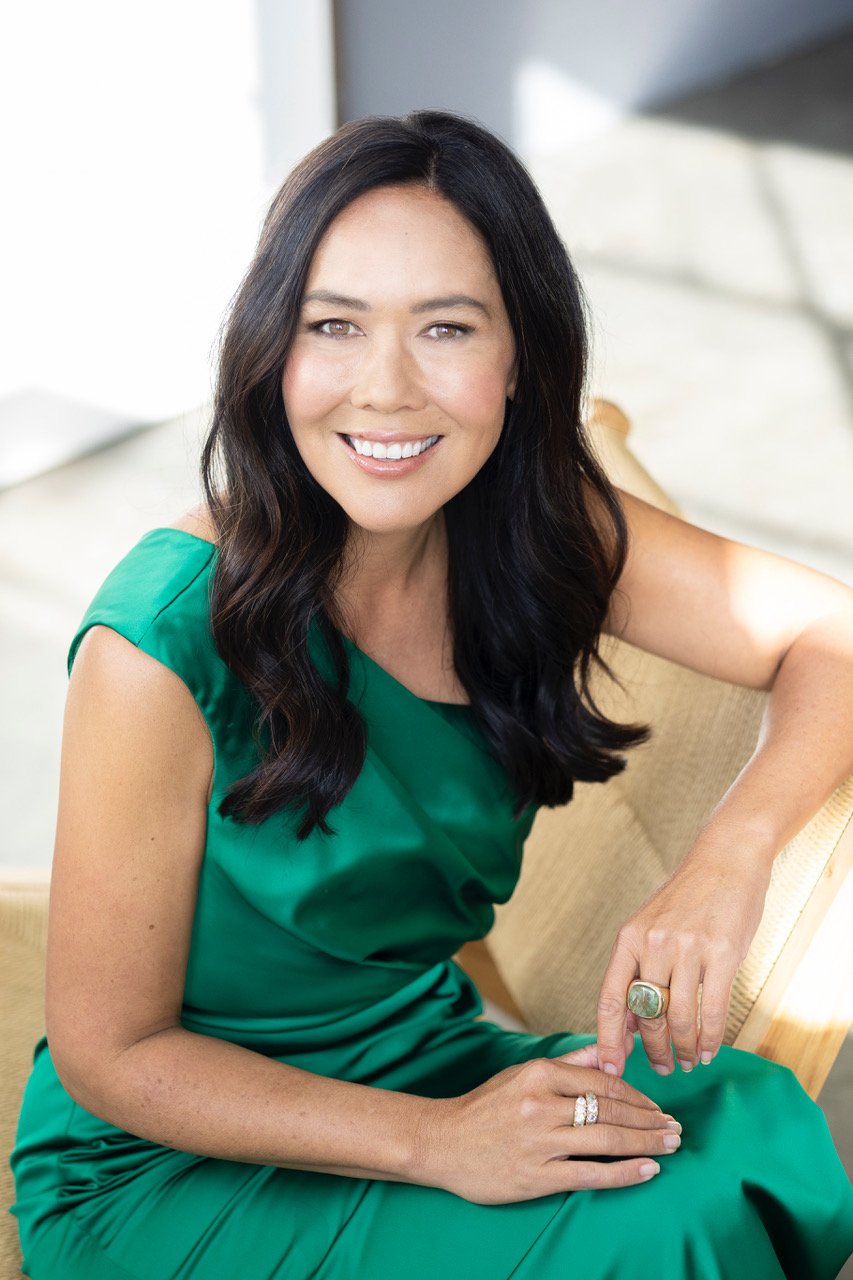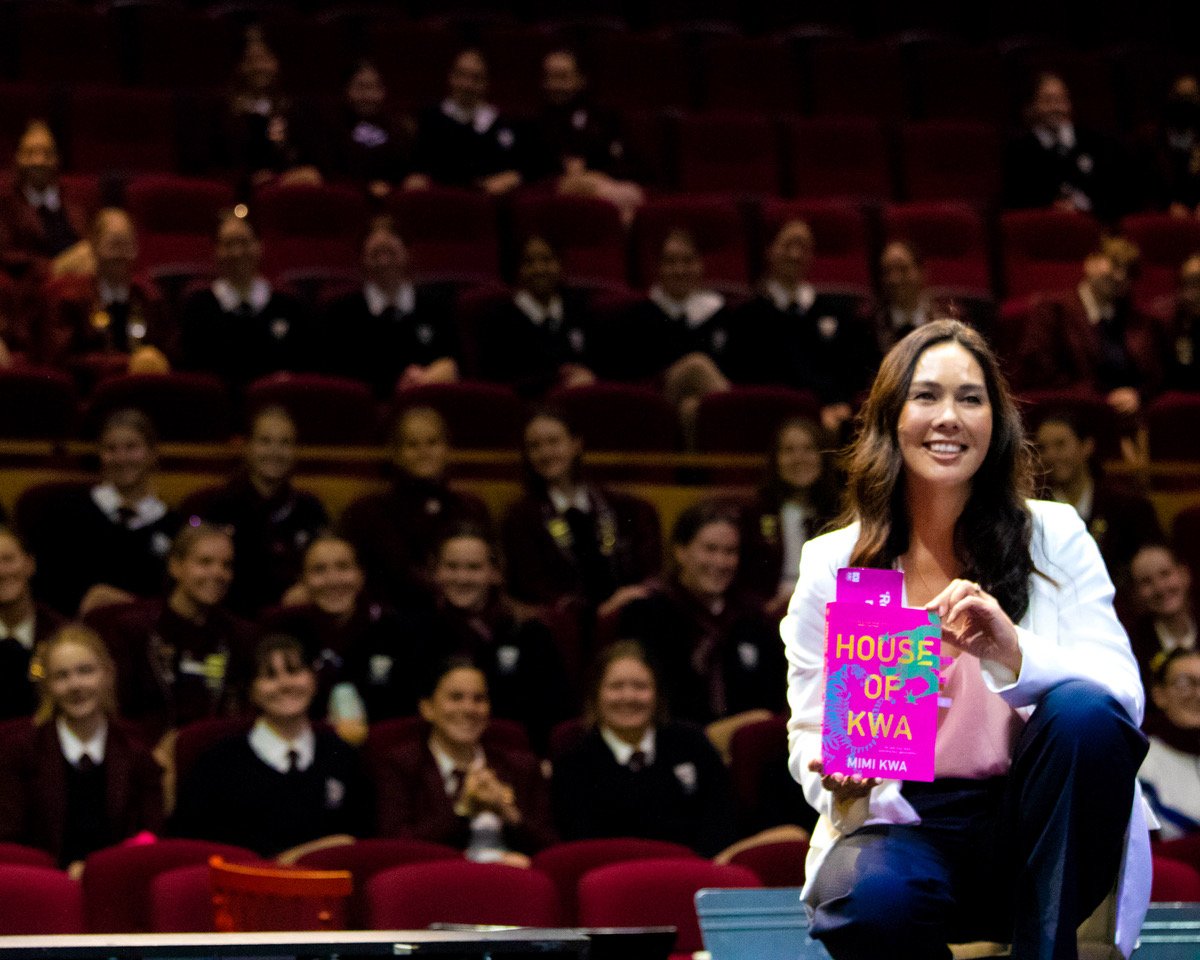Mimi Kwa On Mediums For Authentic Storytelling And Embracing Environments Of Positivity
Mimi Kwa has been a journalist and media personality on stage, page and screen for 25 years. She is an author, and her best-selling memoir House of Kwa is being developed for screen.
As the first person of Asian descent on channel 9 Mimi also read news on ABC TV’s international service to 40 countries, Insiders, The World and News24. Mimi plays herself as a newsreader in international series Wentworth, The Preacher, The Clearing and The Newsreader. She’s a keynote speaker, MC and facilitator and a Mindfulness Meditation Teacher. Mimi has four children.
Mimi discusses her extensive experience in the world of news and how this led her to discovering mindfulness, powerful storytelling for change, and the impact of negative professional environments on health and happiness.
Highlights from the interview (listen to the podcast for full details)
[Sarah Ripper] - To start off, could you please share a little bit about your background and what led you to the work you're doing today?
[Mimi Kwa] - When I was growing up, I was really into storytelling, and I think a lot of us are into storytelling when we're growing up but then we either lose that passion or our direction and focus changes. My focus has always been storytelling, and I'm grateful for that because it led me to journalism. Then, the journalism led me into writing and the writing has led me to what I'm doing these days, which is talking about my books and writing more books! My journalistic career started out at the ABC (Australian Broadcasting Corporation), I had a cadetship there and then I went onto working for Channel Nine. I was the first person with an Asian background on the national news at Channel Nine, and that was amazing. On my first day at Channel Nine, my boss said to me, "you're the first non-wasp I've ever put on television,” and, “don't get any fatter in the face." He used some swear words in there, but I won’t include that here! That was quite a confronting first day in commercial television, but I was just so grateful to be there, so I didn't take offense from his comment. Now you would never dream of anybody saying anything like that in any newsroom or workplace.
That was where I started, 25 years ago in news, and then I started a family and have got four beautiful children. At Channel Nine I was in helicopters every day flying around chasing stories and, "the bad guys." I was down the street, climbing fences in stilettos and doing all that glamorous hair-raising Current Affair type coverage. I had lots of adventures when working there, but when I had my first child, I realised it's just not the type of life I can lead now. When I had my first child, he was two weeks old, and I was on maternity leave from Channel Nine. The ABC heard that I was on maternity leave, so they called me and said, "do you want to come in and read the news for our international service? We'll talk to Channel Nine and make sure it's all good with them because it won't be seen in Australia." I went to the ABC when my first child was six weeks old and handed him over to the hair and makeup artist to hold while I went on air read my first live bulletin. That was beamed out to 40 countries around the world, which was amazing, so I stayed at the ABC for the next 18 years on and off to read the news.
In terms of your current work, tell us about your writing and other key projects which are creating an impact?
When I was a news reporter and newsreader, I felt like I was being of service, and I was reporting on the stories and things which I thought mattered. I do think that was an important service that I was a part of providing, and I do think that journalism is an important occupation; we need good independent news media.
For all the interviews that I had ever conducted (and I've been lucky enough to interview prime ministers and influential people like Russell Crowe, Serena Williams, and John Cleese), what was going on behind the scenes in my life was very dysfunctional.
I had come from a difficult family upbringing; my mum is chronically schizophrenic, and when I was growing up, she was undiagnosed. My father and mother were separated, my dad had the biggest backpacker’s hostel in the Southern Hemisphere, so 100 people slept over at my house every night! What I'm trying to say is that all the amazingness and strangeness of my journalistic life and career just didn't compare to my real life behind the scenes. It wasn’t until I started to write about this that I realised this was the direction that I wanted to go in.
I wanted to support other people in their healing from intergenerational and family relationship dysfunction. I want to help contribute to the normalisation of these topics which we all encounter within our families to some degree.
I had this career, which was all polished, constructed, and scripted. Now, I've got this new stream of my career, which is writing that is more unpolished and unstructured (although obviously it must be somewhat structured). It's vulnerable, authentic and the real story behind the story. Through all my 25 years of journalism that I've appreciated, thrived in, and enjoyed, it has led me to a place where I want to shed all the preteens and step out from being in front of those bright lights into a new place of authenticity and honesty. This is not only with the people close to me, but with my audience and the people I'm lucky enough to be able to interact with in my day-to-day career. I'm an emcee and keynote speaker for large conferences, so coming back to your question, I'm having an impact now through connecting with people in a genuine, raw, and authentic way about my experiences.
You've traversed the spectrum of storytelling from polished to now ultimately embracing a rawer vulnerability. What are some of the learnings from traversing this spectrum?
At the start I was probably so caught up in the ego of working in news. The driver of it all and the energy of a newsroom would say masculine, and it’s obviously a male dominated industry and a competitive environment.
There was no cultural diversity when I started out, I was the first person of an Asian or non-white background in the Channel Nine newsroom. There wasn't a lot of gender diversity either in the rooms that mattered, at the tables where decisions were being made. There wasn't pay transparency, and there certainly wasn't pay equity.
I had times when I would go for my professional pay review, and when I said, "I'm doing the same job as this person who is a man, I feel like I should be paid commensurate to him," I was told point blank, “you're not him.” I look back on those days and am so glad things have changed, but in terms of what I learned, the news and news media (not all media, there are lots of different forms of media) is very fear based. It's very sensationalist and driven by this ideology that of ‘if it bleeds, it leads’. There were plenty of times during my early career where I was encouraged to as we called it in the newsroom ‘beat things up’, to exaggerate and make a story more dramatic than it was. It was about getting the ratings, and I'm sure that's not anything new to anybody. For me, as a young journalist going into the field, I wanted to make a difference.
I think journalists become journalists because we want to make a difference by reporting the truth, getting behind the lies, and having integrity with what we do. Some journalists change their focus and values along the way due to different influences, but I don't think my values ever changed. Sometimes I had to tow certain lines to keep my job, but I think my values remained the same which is what kept me in good stead throughout my long career in journalism.
What I learned when I left Channel Nine was that first I was so grateful for having had that experience, but I then realised there was this negative energy. This is not necessarily just for Channel Nine, but there is this negative energy of reporting bad news stories all the time which impacted my health and mental wellbeing. When I left, I never watched the shows I'd been working on for years, because I've found them to be quite negative. This is not the reporters or stories themselves, but the topics that were covered.
When I read my last news bulletin for the ABC in 2021, I was ready to leave. I was ready for that to be my last bulletin, to move onto something where I could contribute in a positive and energetic way. I want to contribute in a way that isn’t based on fear but trying to shift the framework around how we view life and our relationships.
What inspiring projects or initiatives have you come across creating a positive change?
Something I'm doing in the positive change space is I'm studying to become a mindfulness meditation teacher. I'm studying with the University of California, Berkeley, and it's a two-year course which I'm about 15 months into. It's equipping me to become a mindful meditation teacher, but it's also something I want to do through not necessarily teaching in small classes (although I might do that because I'm enjoying the class). I'd like to be able to walk into conferences and offer my clients that service, of being able to emcee but also offer everybody a 10-minute meditation at the beginning of the conference or in the breakout room during your coffee or lunch break.
This course is an amazing initiative that has been brought out in conjunction with Sounds True, and Sounds True is an American organisation. Their mission is to help wake up the world and support people through meditation, psychology, and scientifically proven methods. Something else they do which I think is impactful thing is offer an MBA in mindful leadership. I haven't done this course but seeing that advertised through Sounds True (who are also a publisher) is what led me to the meditation course I'm doing at the university. This came about through listening to podcasts, reading books and all sorts of other things, and it's funny where life leads you.
I never imagined I was going to end up going down the road of becoming a mindfulness meditation teacher, which is very much rooted in Buddhism but aimed at being a secular practice. It hopes to attract more people to use methods of mindfulness meditation, to support their mental health and wellbeing.
To finish off, what books or resources would you recommend to our listeners?
Going down that road of meditation and supporting people's mental health and well-being, Oprah led me to the book which led me down this path. I love Oprah, and the book is Eckhart Tolle's A New Earth. I am reading A New Earth along with Oprah, who interviews Eckhart on a podcast she does with him. They do a chapter per podcast episode, and it has transformed my way of thinking and looking at the world. It opened the door to spiritual learnings I didn't even realise were there, and it's similar to that expression, "when the student is ready, the teacher will appear," I couldn't go anywhere without seeing these spiritual books published by Sounds True, Hay House or other publishing houses.
They had always been there on bookshelves in bookshops, but I just hadn't picked them up before. I wasn't energetically aligned with that up until then, and so now along with Eckhart Tolle's book I've dived into many other podcasts. A Life of Greatness was one I discovered with Sarah Grynberg, she's a local presenter in Melbourne. She has this amazing podcast called A Life of Greatness, and she's interviewed incredible changemakers and healers like Marisa Peer, Bruce Lipton, and Joe Dispenza. All these people I've now discovered and view as a smorgasbord of knowledge and healing, and it just up levelled me up in a way that is quite difficult to explain. It has opened my world, I've always been a lifelong learner, and now I definitely will be because there's just so much to learn.
Initiatives, Resources and people mentioned on the podcast
The Eckhart Tolle: Essential Teachings Podcast with Oprah Winfrey
A Life of Greatness Podcast with Sarah Grynberg
Recommended books
House of Kwa by Mimi Kwa
A New Earth: Awakening to Your Life's Purpose by Eckhart Tolle









